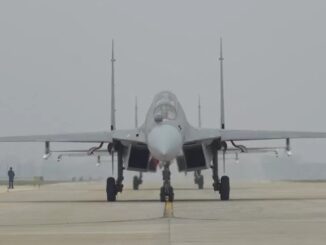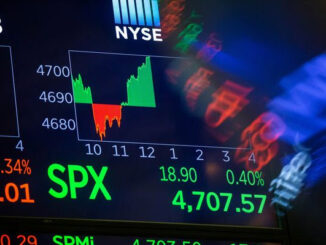
A US-China clash over the self-ruled island would cost the world some $10trn, the business news outlet estimates
If the US and China were to have a military showdown over the island of Taiwan, the global GDP would plummet 10.2% in one year, or roughly $10 trillion, Bloomberg’s modeling predicts. The business news agency says the silver lining is that all parties involved have the incentive to avoid a conflict.
Taiwan is a self-governed Chinese island that was the last refuge of nationalist forces during the civil war which ended in 1949. It has a security arrangement with the US, which has pledged to defend it, should Beijing try to take it by force.
The Chinese government seeks Taiwan’s peaceful reintegration, but has said it would resort to military action if the island seeks formal independence. President Xi Jinping said that the two would “surely be reunified” in his New Year address. The tensions are part of a global US-Chinese power struggle, in which each party accuses the other of harboring malign intentions.
The possibility of an open armed conflict for Taiwan remains low, but significant enough for corporations to be hedging their bets, Bloomberg said on Tuesday. The island is a leading manufacturer of semiconductors, making its economy crucial for the global production of laptops and mobile phones, and to a lesser degree, cars. The Taiwan Strait is also a major maritime shipping route.
Bloomberg’s research unit used computer modeling to estimate the impact of a conflict over Taiwan on the global economy. It considered two scenarios: one involving a year-long naval blockade by China and the other a full-scale US-Chinese war. The first would cost the world 5% of its annual GDP, while the second would do more than twice as much damage.
The modeling relies on certain assumptions, such as the US ability to rally its allies to punish China with economic restrictions.
The Bloomberg estimate for the cost of the war, however, is not the worst-case scenario. If businesses relying on Taiwanese chips underperform in substituting them, the global GDP may lose as much as 14%, Bloomberg said. However, if they fare better than expected, the cost would be lower.
Bloomberg forecasts that in both scenarios, China would take a heavier economic hit than the US, but “the $10 trillion cost of a crisis would be so high for all players that the incentive to avoid it is strong,” the report said.
On Tuesday, Taiwan’s administration issued an island-wide alert, reporting a Chinese satellite launch over its airspace. Mainland media said the payload was an astronomical satellite. Earlier, in December 2023, Taiwanese media had also reported on Chinese carrier rockets passing over the island.



